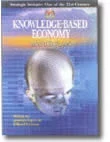Major Research and Consultancies
Capitalizing on the Economic and Business Potential of the Socialist Republic of Vietnam: A Strategic Plan of Action
This was a study commissioned by the Ministry of Trade and Industry to provide a roadmap for Malaysia to profit from opportunities offered by Vietnam. The final report was submitted in February 2009.
Energy Blueprint Report
This study commissioned by the Energy Commission of Malaysia with the signing of agreement in September 2007 was undertaken by the Bureau of Environment, Science and Technology (BEST) of ISIS Malaysia. The report was submitted in January 2009.
The Regulatory burden in APEC Countries: Case Study of Reforms for the Real Estate Industry in Malaysia
A report commissioned by the World Bank was submitted in November 2008.
Study to Review the Process and Procedures Involved in Employing Foreign Maids from Indonesia.
This project was commissioned by EPU/MTEN/NIND, Prime Minister’s Department. The study was to review the process and procedures involved in the recruitment and employment of foreign maids from Indonesia and suggest ways to curb abuse. The report was submitted in January 2008.
Study on the Institutional Structure of the Recruitment Process and Affordability of Employees to Hire Foreign Maids from Indonesia
This is a follow-up study commissioned by EPU/MTEN/NIND, Prime Minister’s Department to examine the establishment of a lead body to manage the processes of employment of foreign maids. A report was submitted in January 2008.
Archives
Public Seminar on Rising Prices
ISIS Malaysia conducted a series of public seminars entitled: ‘Public Seminar: RisingPrices and People’s Welfare: Current Measures and Future Steps” in various states of Malaysia. Meetings were held in Kuala Lumpur, Pulau Pinang, Kuala Trengganu, Kota Kinabalu, Kuching and Johor Baru in the month of May 2008.
Evaluation of Japan’s Official Development Assistance (ODA) to Malaysia.
This study conducted under the Center for Japan Studies was commissioned by the Ministry of Foreign Affairs, Japan, December 2007.
UNDP, ISIS and MIER
ISIS Malaysia jointly authored a publication entitled ‘Malaysia:International Trade, Growth, Poverty Reduction and Human Development’ along with the UNDP and the Malaysian Institute of Economic Research (MIER). This publication, and the UNDP Human Development Report, was subsequently launched by the Deputy Prime Minister, Dato’ Seri Abdul Najib b Tun Abdul Razak on 4 July 2006 at the Putrajaya Marriott Hotel and a panel discussion held.
The Islamic Development Bank (IDB) Vision 1440H.
ISIS Malaysia was engaged by the Islamic Development to be the Lead Consultant for the IDB 1440H Commission. ISIS Malaysia also helped draft the Commission’s proposal for IDB Vision 144OH. The Vision Commission’s Report was later accepted by the IDB Management Former Malaysian Prime Minister Tun Dr. Mahathir Mohamad was the Chairman of the Commission. The IDB Vision 1440H was launched in March 2006.
Royal Commission to Enhance the Operation and Management of the Royal Malaysia Police.
ISIS Malaysia assisted The Royal Commission To Enhance The Operation And Management of The Royal Malaysia Police in the preparation of its Report to the Seri Paduka Baginda Yang di-Pertuan Agong and Government of Malaysia. The Report was submitted by The Royal Commission To Enhance The Operation And Management Of The Royal Malaysia Police in May 2005. The Royal Commission submitted over 120 recommendations regarding enhancement of the performance of the Royal Malaysia Police for the consideration of government.
Malaysia’s Knowledge-Economy Master Plan
A Master Plan was prepared by ISIS Malaysia under the guidance of the steering committee chaired by the Minter of Finance. This resulted in the publication: Malaysia’s Knowlegde-Economy Master Plan: Making the Quantum Leap to the K-Based Economy, September 2002.
National Brains Trust on National Education
ISIS Malaysia played a leading role in the National Brains Trust on Education established in 2002. This study was conducted upon the request of the Ministry of Education. The objective was to recommend policies to help in the formulation of a Strategic Plan for education to the year 2020. An international Brains Trust on Education was held at ISIS in 2002 to assist in the preparation of the Strategic Plan. A paper entitled: A Strategic Plan for Education 2020 was prepared by ISIS Study Group One.
Malaysia Initial National Communication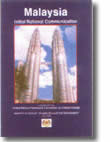
ISIS Malaysia was the project manager of this report, which was submitted to the United Nations Framework Convention on Climate Change, by the Ministry of Science, Technology and the Environment in July 2000. The study outlined Malaysia’s efforts in addressing the causes and impacts of climate change and the strategies that have been pursued to achieve national development goals.
The Industrial Transition of Malaysia’s Electronics Industry
This 9-month study has been commissioned by United Nation Development Programmes (UNDP) through the Economic Planning Unit (EPU) of Malaysia. It is conducted in conjunction with EPU, ISIS and UNIDO. The objective of this study is to assist the Government of Malaysia in defining the strategic industrial policy to foster and enhance indigenous production and technological capability in the electronics industry. The report was submitted in October 1998.
Environment and Natural Resource Accounting (ENRA) for ASEAN countries
The ENRA study, the proposal of which was formulated by ISIS to assist the national focal point, the DOE, and tabled under the auspices of the ASEAN Working Group on Environmental Economics (AWGEE), is intended to develop a practical accounting system of natural resources and the environment which can be implemented individually or collectively by ASEAN countries. It will be used as a basis for research and monitoring of environmental degradation as well as for planning and analysis of policy strategies and programmes in line with the principle of sustainable development. The study was completed in 1998.
Polytechnic Development Study
This was a 9-month study commissioned to ISIS by the Ministry of Education (MOE) in June 1997. The objective of the study is to recommend to the MOE policies on the future development of polytechnic education. The focus will be on the future demand and supply of manpower at the mid-engineering level to the year 2010. Additionally, the study will also make recommendations on student intake and polytechnic curriculum.
Support to Environment and Natural Resources Research and Development Capacity
The project, completed in 1997, was implemented by ISIS Malaysia with the financial support of UNDP. It was aimed to establish a framework for policy analysis on issues related to environment and natural resources. A series of small grant projects were conducted and the report of the projects was published under the title: Monograph Series on Environment and Development in 1999.
Support to Environment and Natural Resources Research and Development Capacity – Information Database
Similarly the UNDP also funded the project with the aim to establish a database on environment and natural resources for the purposes of policy planning and analysis. It entails a comprehensive assessment of existing information on the subject, including proposals for enhancement and identification of potential users. It was completed in 1997.
Environmental Management Capacity Building
There were three areas of research to this project which was funded by UNDP. The reports were completed in 1997.
1. Environmental Management Capacity Building – Water Quality Monitoring
In recognition of the need for a more comprehensive and more accurate reporting of the country’s surface water quality, which so far has largely been assessed in terms of physico-chemical properties, this UNDP-funded project is intended to facilitate the water quality monitoring programme of the DOE, focussing on enhancement of their monitoring techniques, with particular emphasis on monitoring of biological indicators.
2. Environmental Management Capacity Building – Toxic and Hazardous
Waste Management
This constitutes a component implemented parallel to the project above, and aims to enhance the regulation and management of toxic and hazardous wastes (THW, or legally termed ‘scheduled wastes’) in the country. Technical assistance is provided for the DOE to update the relevant regulations and waste definitions, treatment and disposal requirements and incentives for minimization and compliance, in cognizance of the pending implementation of the THW integrated facility in Negri Sembilan by a government-appointed consortium.
3. Federal-State Relationships in Environmental Management.
The third component of the project examined the relationship between federal and state governments in Malaysia with regard to jurisdictions and responsibilities for the management of environmental resources. Another purpose of this project component was to undertake a comparative study of the structure and distribution of jurisdictions and responsibilities in countries with similar federal-state structure to Malaysia and to recommend approaches to ensure effective management of environmental resources.
Housing Industry in Malaysia
A study was commissioned by Cagamas Berhad to undertake a nationwide study on the housing industry. Findings from the study were published in a book: Housing the Nation: A Definitive Study, in 1997.
The Political and Economic Environment in Indonesia: Prospectus for the life Insurance Industry.
This study, commissioned by Prudential Asia (Hong Kong & New York) in January 1997, examined the growth opportunities of the life insurance industry in Indonesia over the medium-term amidst significant political and social change. The Analysis focused on political and economic dynamics in Indonesia, as well as on socio-economic conditions and emerging social trends as the key determinants shaping prospects for the life insurance industry.
New Industrial Master Plan – Human Resource Development Study
This study is commissioned by the Ministry of International Trade and Industry (MITI) to contribute to the Human Resource Development (HRD) component of the New Industrial Master Plan of Malaysia. The aim of the study is to consider ways to improve HRD in the country and to recommend policies to facilitate a shift towards more skills intensive HRD programmes in line with the government policy of encouraging capital intensive and high-tech industries. The report was completed in May 1996.
Trade and Environment Linkages – Malaysia Country Study
This project, commissioned by the Asean Secretariat in May 1995 and completed in August 1996, was jointly undertaken by the Bureau of International Economic Studies (BIES) and the Bureau of Environment, Science, and Technology (BEST) of ISIS Malaysia. Its aim was to examine whether there was a need to adopt common environmental policies at the ASEAN level in order to maximize the gains accruing from the ASEAN Free Trade Area by ensuring that national environmental policies and regulations did not distort the free movement of goods, services, and capital within the single ASEAN market. Through country studies of Malaysia, Indonesia, Thailand, Singapore, and the Philippines, the project focussed on three major issues – – the desirability of adopting the polluter-pays-principle to address environmental externalities on a wider basis in each ASEAN country; the desirability of harmonising environmental-related product standards in ASEAN; and whether a common mechanism to integrate environmental policies and regulations with foreign direct investment policies in each ASEAN country was needed to minimize the possibility of investment diversion within ASEAN due to different national environmental regulations and policies.
Energy Policies and Strategies for Malaysia Until the Year 2020
The objective of the study, commissioned by the EPU, is to prepare energy policies for the period up to 2020 which will provide the government with a reference framework for decision making on the strategic energy sector issues by the analysis of all relevant parameters that will determine the path of social and economic development and the long term scenarios for the development of the Malaysian energy sector. The study was completed in 1996.
Assessment of Biological Diversity in Malaysia
ISIS Malaysia together with Malaysian Nature Society, World Wide Fund for Nature Malaysia and Universiti Pertanian Malaysia assisted in preparing the Background Documents for the Country Study on Biological Diversity between June 1995 and July 1996. The report: Malaysia: Country Study on Biological Diversity – Assessment of Biological Diversity in Malaysia was published by the Ministry of Science, Technology and the Environment, Malaysia in 1997.
Malacca Strategic Development Plan
The study analysed and reviewed the development and trends of the identified sectors within the economy, projected future development trends of each sector towards the year 2020, identified the obstacles and opportunities in the state’s attempt to realise full development potential of each sector, and developed a strategy for the future development of each of the areas studied. It was submitted to the Malacca State Government in August 1995.
National Policy on the Environment (NPE)
ISIS through the Bureau of Science, Technology, Energy, Natural Resources and Environment (BEST) assisted the Ministry of Science, Technology and Environment (MOSTE) and Department of Environment (DOE) in fine-tuning the NPE document. Following the collaborative work of the Drafting Committee (MOSTE, DOE and ISIS), a national workshop was held in ISIS in November 1994, and after a series of Steering Committee meetings, the document was submitted in 1996, and approved by the Cabinet in 1998.
National Spatial Planning Project
The Project analysed spatially the relationship between development and the natural resources among the various states in Malaysia. The natural resources components studied were land, forest, fisheries, freshwater and minerals but excluding petroleum. The study recommended a list of policy options to ensure sustained balanced growth through the optimum use of resources. The report: National Spatial Planning Study: Malaysia: A Report on Sustained Resource Development – Final Report, consisting of 8 volumes was completed in December 1994.
The New World Order: What Malaysia Must Expect, What Malaysia Should Do
The paper, prepared for the Cabinet, examined the New World Order in the following dimensions: The New World Political Order, The New World Military Order, The New World Economic Order, The New World Social and Cultural Order, The New World Science and Technology Order, The New World Ecological Order.
Indonesia, Malaysia, Thailand Growth Triangle: Malaysian Perspective
The study was concerned with the development of the growth triangle in North Malaysia and covered the following areas: macro perspective and structural changes in Northern Malaysia 1980-2000, sectoral development, indications of interdependence, obstacles and constraints, and potential areas of co-operation. It was prepared by the Bureau of National Economic Policy Studies, ISIS Malaysia in August 1994.
Commission for A New Asia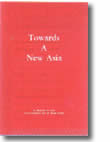
ISIS Malaysia played a contributing role in the development of the Commission for A New Asia. A book was published entitled: Towards a New Asia: A Report of the Commission for A New Asia, in 1994.
Development Potential of East ASEAN Growth Area: A Brief Assessment
It was a joint study by the Economic Planning Unit, Prime Minister’s Department and ISIS Malaysia in November 1993. This project explored the areas of co-operation in the Brunei, Indonesia, Malaysia and Philippines growth area. It brought together, with the exception of Brunei, the relatively less developed regions of national economies. The study highlighted the existing level of interaction between the sub-regions in terms of trade, investment and labour mobility; assessed the potential areas for co-operation in agriculture, tourism and financial services; and outlined the development path as envisioned by policy planners as well as the constraints and limitations encountered in fulfilling development objectives. The social, political and security implications were also assessed. Some views on the strategic interests of Malaysia in the realisation of the EAGA were put forth.
Local Dimension of Environmental Management: Analyses of Malaysian Institutions and Cases
The Centre for Environmental Studies at ISIS Malaysia in collaboration with the International Development Center of Japan (IDCJ) made a study report on the environmental management in Malaysia. This report was prepared for the Ministry of Foreign Affairs of Japan and published in March 1993.
Development Potential of the Indonesia-Thailand-Malaysia Regional Development Project (ITMRDP)
This is a joint study by the Economic Planning Unit and ISIS. The project provided an overview of the structure of the economies of these regions in terms of production, trade tourism, investment and demographic patterns, including labour movements; undertook an evaluation of recent developments in the region; made assessment of the adequacy of the infrastructure of the region including shipping and telecommunications; made an assessment of the institutional framework and policy environment prevailing in this region; assessed the social, political and security implications on the Northern Region proposal and suggested measures to minimise any adverse effects; identified the potentials for economic co-operation to enhance the growth potential of the region; proposed mechanisms and processes to enhance and facilitate intra-regional co-operation; and developed and instituted a preliminary database system for the collection of information for effectively monitoring the performance and the potential of the region. The main report was submitted in July 1992.
ISIS-Harvard Institute of International Development (HIID) Economic Study on Malaysia
The ISIS-HIID Conference on the Malaysian Economy from June 1-3, 1992 launched a two-year collaborative study between ISIS Malaysia and the HIID (Harvard Institute for International Development). This was a study on the Malaysian economy, with the aim to look at the nation’s recent development experience and examine the necessary conditions, given present and future constraints, for it to join the ranks of developed countries. Two books were published as a result of this project:
1. Snodgrass, Donald R. Successful Economic Development in a Multi-Ethnic Society: the Malaysia Case. Cambridge, Mass.: Harvard Institute for International Development, Harvard University, 1995.
2. Vincent, R. Jeffrey, Rozali Mohamed All and Associates. Environment and 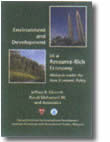
Development in a Resource-Rich Economy: Malaysia under the New Economic Policy. Cambridge, Mass.: Harvard Institute for International Development, Harvard University, 1997.
The Establishment of a Contract Research System
The study, financed by the International Development Research Centre, Canada, was conducted by Dr Hamzah Kassim and Dr Anuwar Ali under the auspicies of the Bureau of Science, Technology, Energy, Natural Resources and the Environment, ISIS Malaysia. It was completed in 1993.
An Initiative for the Greening of the World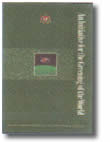
ISIS Malaysia assisted the Ministry of Science, Technology and the Environment in the preparation of the report ‘An Initiative for the Greening of the World’ which was published in 1992.
Country Report Malaysia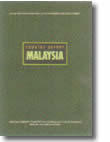
ISIS Malaysia was commissioned by the Ministry of Science, Technology and the Environment to prepare the Country Report for the United Nations Conference on Environment and Development (UNCED) in 1992.The report preparation involved the assembly of existing and available material and results of extensive research as well as studies that were carried out in the country.
A More Caring Society: Emerging Issues and the Future Directions
This was a study of how to strategically manage the impact of the industrialisation process to minimise its most negative consequences and thus to preserve social cohesion, human dignity and the quality of life. Provides a review of some critical issues that should be considered in reorienting the social welfare policy of Malaysia. A series of Caring Society Programme Lectures were conducted and a book entitled “Caring Society: Emerging Issues and Future Directions” was published by ISIS in 1992.
Penang Strategic Development Plan, 1991-2000
This project set the broad framework to guide Penang into the 21st century as a fully developed society with a post-industrial economy emphasising excellence and quality. It dealt with the macro overview of the state, sectoral studies, the supporting framework and the institutional framework. Major issues that could hinder the realisation of the full development potential of each sector of the economy were indentified and analysed. The final report was submitted to the Penang State Government in October 1991.
Vision 2020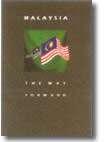
ISIS Malaysia contributed to the development of the Vision 2020. The publication on Vision 2020, entitled Malaysia: The Way Forward was presented by Dato’ Sen Dr. Mahathir Mohamed at the inaugural meeting of the Malaysian Business Council on 28 February 1991.
Malaysian Business Council
ISIS Malaysia was the Secretariat for the Malaysian Business Council and its Centre for Economic Research & Services was established within the Institute in 1991. The Executive Director of the Centre was Dr. Noordin Sopiee and the Deputy Executive Director was Dr. Ismail Salleh.
Panel of Eminent Persons
A Panel of Eminent Persons was established to study and make the necessary recommendations on strengthening and revamping the structure and mechanism of Asean, in particular the Asean Secretariat. The panel members were: Tan Sri Ghazali Shafie (Chairman), Professor Mohammad Sadli, Dr. Noordin Sopiee, Dr. Jacques Pelkmans and Emeritus Professor Gladstone Everard Mills. A Report, ‘Strengthening the Structure and Mechanism of Asean With Special Reference to the Asean Secretariat’ was prepared for the Asean Standing Committee by the Panel in 1991.
Commonwealth
A Review of Malaysia’s Position in the Commonwealth was submitted to the Government in 1990.
South-South Cooperation
ISIS Malaysia played a part in initiating the idea of a Commission for the South. The Commission for the South was established in 1987, and was initiated by Dato’ Seri Dr. Mahathir Mohamad after a meeting organized in Kuala Lumpur by the Third World Foundation and ISIS Malaysia. The South Commission produced a book: The Challenge to the South: The Report of the South Commission. Oxford: Oxford University Press, 1990.
Government Incentives and Comparative Advantage in Livestock and Feedstuffs Sectors in Malaysia
The project was funded by the Asian Development Bank. A final report was prepared by Tan Siew Hoey, leader of the team and 3 other members from UPM in September 1989.
Government Interventions in the Padi and Rice Industry of Malaysia
This study has been commissioned by the World Bank as part of a EPU/World Bank Project on the Restructuring of the Rice Industry. The study was undertaken by two teams – one from Universiti Pertanian Malaysia and one from ISIS Malaysia. ISIS was to focus on the overall policy analysis, assessing policy impacts on the production, processing and consumption of rice. The report was submitted in April 1989.
OECD Dynamic Asian Economies
ISIS was the Malaysian representative to the OECD Dynamic Asian Economies dialogues from 1989-1992.
Japan-Southeast Asia (JASA) Conferences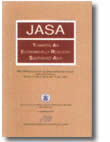
ISIS and the Sasakawa Peace Foundation of Japan jointly initiated a series of conferences with the aim of providing a forum for Southeast Asian countries and Japan to exchange philosophical ideas about policies which had or had not made each country resilient, taking into account domestic capabilities, constraints and circumstances.Three main meetings were held — the First JASA in 1989, JASA II in 1991 and JASA III in 1992.
Action Plan For Industrial Technology Development
ISIS was the Technical Secretariat set up for the Committee to formulate an Action Plan for Industrial Technology Development in October 1987. The report took two years of research work involving a group of experts. The final document entitled: Industrial Technology Development: A National Plan of Action; A Report of the Council for the Coordination and Transfer of Industrial Technology, Ministry of Science, Technology and the Environment, Malaysia was submitted by the Committee to Formulate an Action Plan for Industrial Technology Development in February 1990.
Malaysia’s Public Sector
This project was commissioned by the Ministry of Finance. A full report on ‘The Management of Malaysia’s Public Sector Size’ was submitted to the Ministry in August 1987.
Group of Fourteen on Asean Economic Co-operation and Integration
ISIS Malaysia was delegated as the Secretariat for the Group of Fourteen (G-14) on Asean Economic Cooperation and assisted in the preparation of the G-14 Report entitled: Asean The Way Forward: The Report of the Group of Fourteen on Asean Economic Cooperation and Integration, published in 1987.
ISIS-World Bank Study of the Malaysian Industrial Subsector
Four reports were prepared for this study in August 1985:
1. Agricultural machinery by Mustafa Mohamed Najimuddin
2. Rubber products manufacturing by Tan Bok Huat
3. Selected electrical products manufacturing by Vijayakumari Kanapathy
4. Wooden furniture manufacturing by Rauf A. Salim.
Competitiveness Study of the Electronics and Electrical Industry and the Palm Oil Industry of Malaysia
The scope of this study covered two sub-sectors namely the electrical-electronic and palm oil industries. Its objectives were to determine for each industry, its profile, market structure and nature of price and non-price determinants of competitiveness, based upon an integrative market.
Sub-regional Cooperation between Mindanao, Sulawesi, Sabah, Sarawak and Brunei
This study was undertaken at the request of President Ramos of the Philippines. It examined the potential for enhancing growth and development of East Malaysia together with that of its neighbouring region by first evaluating the existing level of regional economic integration, then exploring areas of economic co-operation subject to present constraints and barriers. Lastly it assessed the economic, political and security implications arising from the realisation of the growth triangle.
Asia Pacific Roundtable Conference
ISIS Malaysia initiated the Asia Pacific Roundtable Conference in 1987. From 1993 to the present, it has been under the sponsorship of Asean-ISIS. ISIS Malaysia has been the host for this meeting for the last 22 years.
East Asia Congress
ISIS initiated the East Asia Congress in 2003 and has been hosting the event annually since then for the last 5 years.
Malaysia National Committee for Pacific Economic Cooperation (MANCPEC)
ISIS Malaysia has been holding the chairmanship of MANCPEC since its establishment.
Council for Security Cooperation in Asia and the Pacific (CSCAP) in Malaysia
ISIS Malaysia is the lead institution for CSCAP Malaysia and acts as the CSCAP Secretariat for Malaysia.
National Economic Consultative Council (NECC)
ISIS has played a very active role in the NECC and has carried out the following studies which contributed to the Draft Report of the Steering Committee.
Malaysia’s Economic Performance in the Seventies and Eighties.
The Determinants of Malaysia’s Economic Performance
The New Economic Policy and Malaysia’s Economic Performance
Malaysia’s Economic Development and its Effects on the New Economic Policy
Future International Development
Future Determinants of Malaysia’s Growth in the 1990’s
Parameters for Policy Formulation
Proposals for the Future
National Economic Policy in the 1990s



